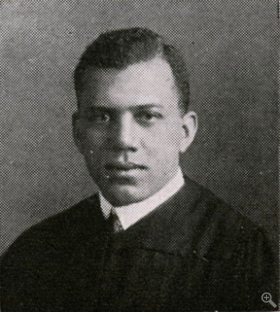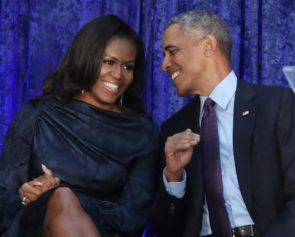Not even during Black History Month has Julian H. Lewis received the acknowledgment deserving of someone who was heralded as the “father of anthropathology,” a discipline that examines racial differences in the expression of disease, and who wrote the book that essentially squashed the primitive notion of a superior race.
Throw in that Lewis also was the first African-American professor at the University of Chicago, and all the reasons are evident why the college on Saturday will host a program honoring Lewis, highlighted with the unveiling of a specially commissioned oil painting of this man of so much history.
The piece will be donated to the Smithsonian’s National Museum of African American History and Culture, scheduled to open in Washington, D.C. in 2016.
“He is virtually unknown, not just within the University (of Chicago), but to the whole world,” said Robert L. Branch II, an independent scholar who has studied the history of Lewis’ life and who will speak at the event. “That’s why I wanted to be part of this, to finally give him his recognition. This is the greatest unknown story of the greatest unknown medical and African-American pioneer of the 20th century.”
Lewis is considered to be one of the first African-Americans in history to hold both an MD and a PhD. His groundbreaking research on race and blood typing led to his equally path-breaking book, Biology of the Negro, published in 1942.
“It was the first book of its kind to objectively use science to dispel the myth of a superior race,” said Branch. “It literally changed people’s perspectives on race.”
It was 100 years ago that Lewis, the son of educator parents who were born into slavery and later liberated from it, earned his PhD in physiology and pathology from the University of Chicago, graduating magna cum laude in just a year and a half.
He then earned his MD from Rush Medical College and joined the UChicago faculty in 1917, as an instructor in pathology. In 1923, he became an assistant professor.
The network of support Lewis created at a time when many students were confronting racism was vast.
“While he was never tenured, and that remains a question,” Branch said, “Lewis became a catalyst for promoting diversity at UChicago. His achievements had a far-reaching impact.”
As an activist and mentor, Lewis supported and championed the early careers of a number of prominent African Americans at UChicago, from dancer Katherine Dunham to the late Prof. James E. Bowman, father of Valerie Jarrett, senior advisor to President Barack Obama.
“I would be hard pressed to name any prominent Black student or faculty member of his era who didn’t benefit from Lewis’ support,” said Bart Schultz, director of the Civic Knowledge Project, sponsor of the event. “He had a terrific impact as a scientist, but he also was a remarkable person.”
While teaching at UChicago, Lewis became the “bridge” between the University and Provident Hospital, the first Black-owned hospital in the country. Said Christopher Crenner, the Ralph Major and Robert Hudson professor and chair of history and philosophy of medicine, at the University of Kansas School of Medicine: “He was a pioneer in many respects.”



